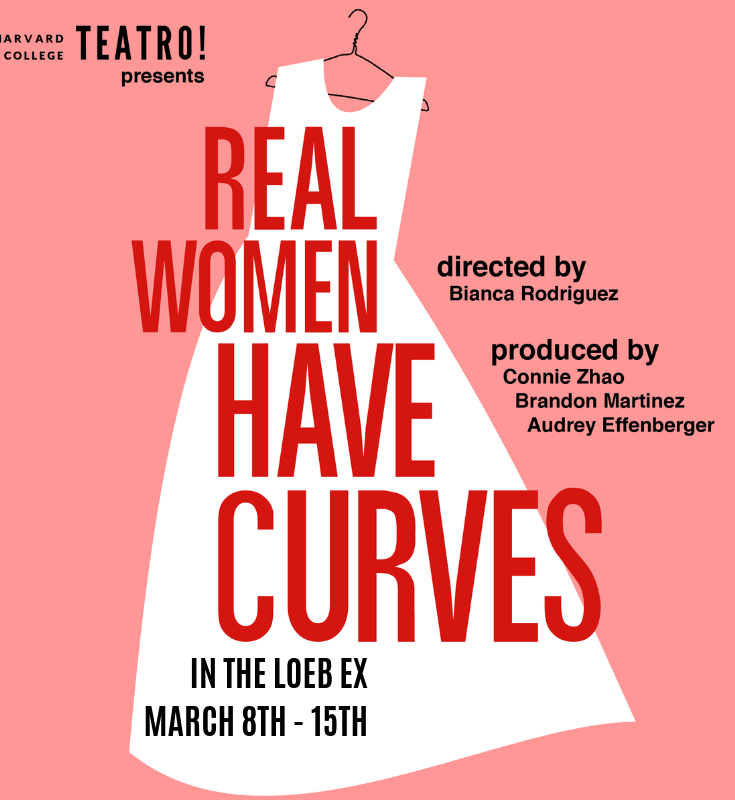In the Loeb Experimental Theater, five women of color sit at a large table surrounded by floral-print sofas, racks of pastel-hued dresses, and walls painted an orangey-pink color lovingly referred to as “Guava Jelly.” They are the all-female student cast of “Real Women Have Curves,” a comedy that deals with issues of immigration, body image, and female worth, opening March 8.
Set in a tiny home-turned-sewing-factory in East Los Angeles, the play follows five Latina immigrant women over the course of five days in 1987 as they share their stories and try to keep up with an impossibly demanding production schedule. The play, which premiered in 1990, was inspired by playwright Josefina López’s own experience as a Latina immigrant working in a Los Angeles garment factory before she attended Columbia College in Chicago. López’s point of view is vocalized through the lead character Ana, a recent high school graduate unhappily working at her sister’s factory while waiting for her college financial aid decision.
For members of the all-female, majority-Latina cast, putting on this play is like coming home.
“A lot of us have lived those experiences or know people that have, which I think makes it very real in a way that sometimes shows aren’t,” Ariana O. Soto ’20 said. Like her character, Ana, Soto is Mexican-American and grew up in Los Angeles.
Noelle V. Castro ’22 plays Estela, the owner of the makeshift factory who, without legal citizenship status, lives in constant fear of deportation. In her first-ever acting role, Castro brings a piece of her own identity to the character. “In her, I see my mom because my mother is an immigrant,” Castro said. “So whenever I think of Estela, what she goes through, and how she’s so motivated to fix her current situation, I think of my mom. Being in this character is so special and the fact that I have the ability to tell her story is just so beautiful.”
Given the current surge in female empowerment activism, director Bianca I. Rodriguez ’20 said that now is the “perfect timing” for “Real Women Have Curves” to take the stage. “I really want people to see that nothing’s changed, no matter how people feel that it has,” Rodriguez said. “The issues that women feel today are things that they felt in 1987.”
Rodriguez explains that although the play addresses relevant social and political issues, everyone can connect to these characters. In an effort to place spectators within the world of the play, Rodriguez opted for an immersive audience experience with seating throughout the stage space.
“You feel like you’re there. You feel like you’re in the room,” Soto said. “It brings people into the story in a way that would be different if they were just sitting in risers.”
Rodriguez said that she hopes the audience will come away with a deeply empathetic understanding of these characters and the Latinx experience at large. “I really wanted Latinx writers and characters to be portrayed as they are, in all their humanity, in a true representation of what Latinidad is,” Rodriguez said. “You’ll laugh, you’ll cry, and you’ll be on this journey with them, together.”
“Real Women Have Curves” will run March 8 through 15 in the Loeb Ex.
This article originally appeared in The Harvard Crimson as “All-Female Cast to Present Comedy on the Latina Immigrant Experience, ‘Real Women Have Curves'” on March 7, 2019: https://www.thecrimson.com/article/2019/3/7/real-women-have-curves-preview/
